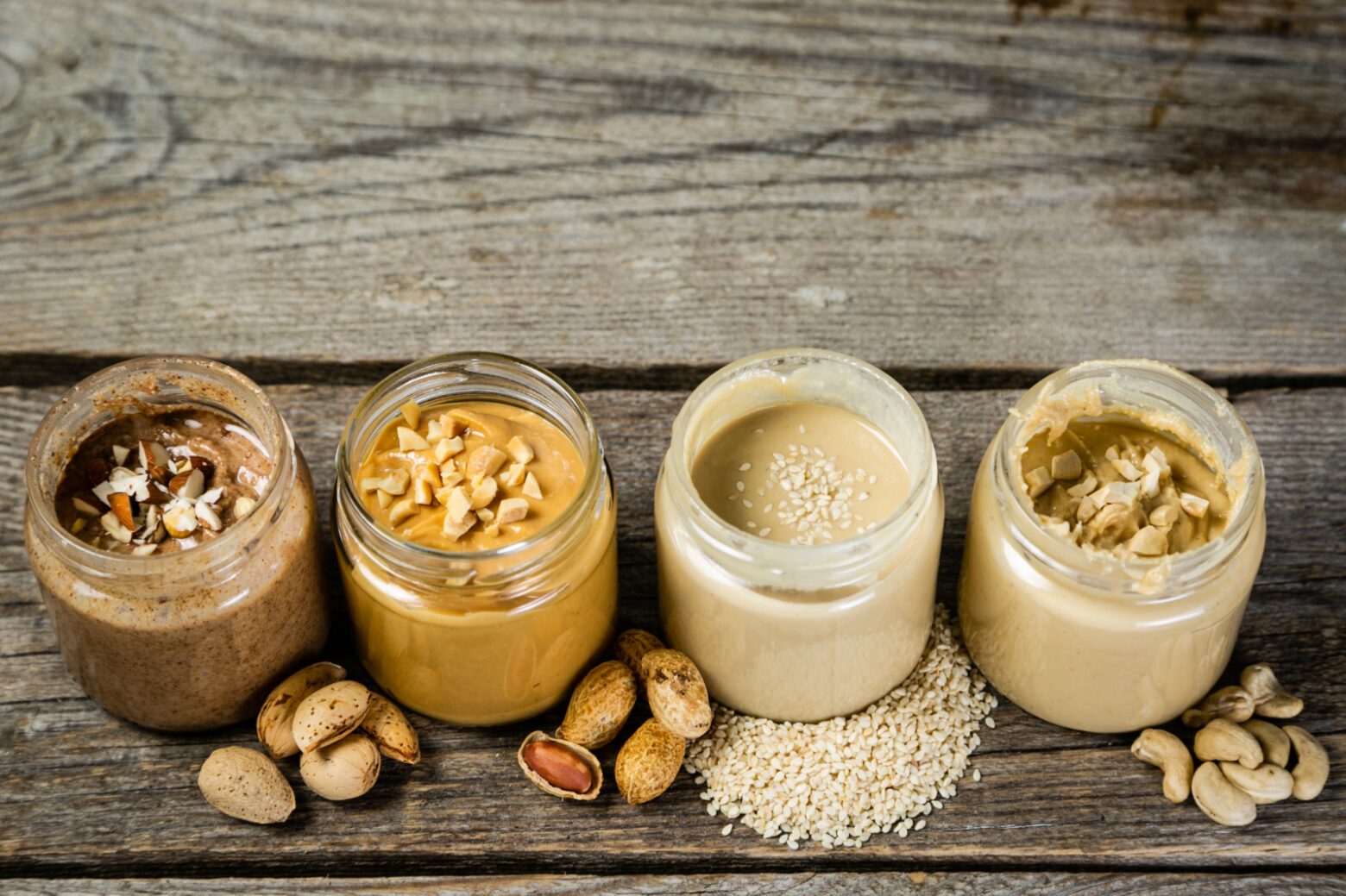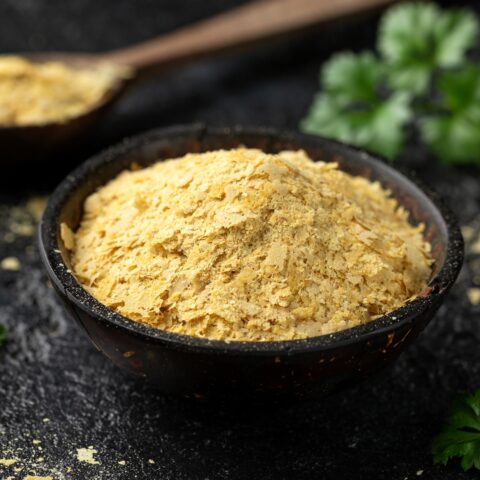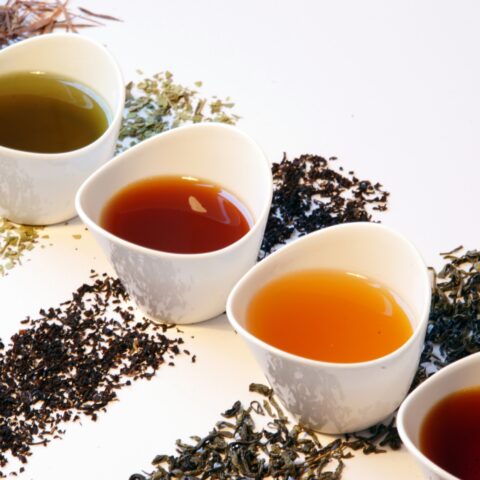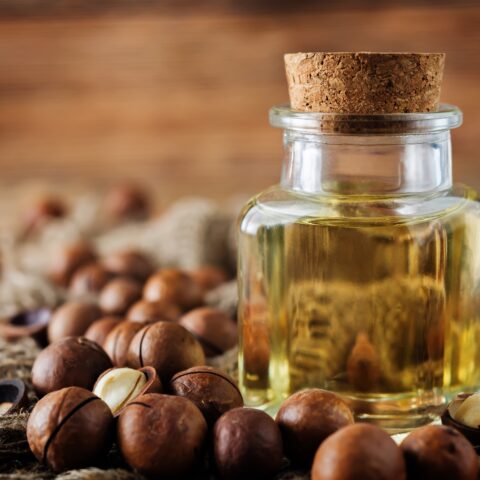Are Nut Butters and Seed Butters Paleo?

If you follow The Paleo Diet®, you’re used to eating foods in their whole, unprocessed form. But since nut and seed butters are technically “processed,” can they be considered a true Paleo food?
The short answer is yes. Nut butters made from cashews, macadamias, hazelnuts, and almonds are all Paleo, but there’s a stipulation: they must only contain nuts. If additives, preservatives, or flavorings are included on the label, it isn’t Paleo.
As with nut butters, seed butters like tahini or sunflower seed butter are Paleo-friendly as long as they contain only seeds and are free of any additives. For those with tree nut allergies, seed butters are a fantastic alternative to incorporating a nutty flavor to any dish or snack.
Pure nut and seed butters are a healthy choice in moderation. The main reason for this is that aside from walnuts, macadamia nuts, and flaxseeds, nuts and seeds have a high omega-6/omega-3 fatty acid ratio, which is not what we want in our overall diet.
Consequently, consuming too many nuts and seeds with a high ratio makes it harder to obtain a good ratio of 1:1 to 2:1. And while walnuts, macadamia nuts, and flaxseeds have acceptable to good ratios, it’s still better to consume them in moderation so you obtain most of your calories from the best Paleo foods: animal proteins, fruits and vegetables.
RELATED: The Fatty Acid Composition of Seeds
Omega-6 to Omega-3 Fat Ratio in Nuts and Seeds
| NUT OR SEED | OMEGA-6 TO OMEGA-3 RATIO |
| Flaxseeds | 0.3 |
| Walnuts | 4.2 |
| Macadamia Nuts | 6.3 |
| Pecans | 20.9 |
| Pine Nuts | 31.6 |
| Cashews | 47.6 |
| Pistachio Nuts | 51.9 |
| Sesame Seeds | 56.3 |
| Hazelnuts | 90.0 |
| Pumpkin Seeds | 114.4 |
| Brazil Nuts | 377.9 |
| Sunflower Seeds | 466.1 |
| Almonds | Extremely high (no detectable Ω3 fats) |
| Peanuts* | Extremely high (no detectable Ω3 fats) |
How Much Can I Eat?
Before you start loading your favorite nut and seed butters onto all your snacks, it’s important to keep in mind that we at The Paleo Diet suggest eating butters—just like their whole counterparts—in moderation.
Since nut butters have been modified from their natural form, it’s easy to overindulge in them. Plus, we only require 20-35% of calories from fat when following a balanced diet. [1] A good rule of thumb is to stick to a maximum of 2 tablespoons of nut butter at each meal.
What About Peanut Butter?
Since peanuts aren’t Paleo, that means peanut butter is off the menu as well.
Peanuts aren’t nuts—they’re actually legumes and members of the pea family. All legumes, including peanuts, peas, and beans, are off limits on The Paleo Diet because they contain anti-nutrients like lectins and phytates, which can be detrimental to one’s health. They exist as a defense mechanism in plants to defend themselves from foraging animals, making them unpalatable or uncomfortable for animals to consume.
Anti-nutrients can trigger digestive issues such as nausea and bloating, rashes, and can interfere with nutrient absorption, which can lead to deficiencies. [2] You can find out more on why it’s best to avoid peanuts in this article.
For those who still crave peanut butter, sunflower seed butter is probably the closest in taste to it.
Homemade, Paleo-Friendly Nut and Seed Butters
To ensure your nut butters are high quality and Paleo friendly, make them yourself using a high-speed blender or food processor. Not only will you have complete control of the ingredients and food quality, but you can also get creative by blending your favorite nuts and seeds together. How exciting is it to invent a totally unique blend for your next spread?
Almond butter will keep for two weeks at room temperature, or at least two months refrigerated.
Nut Butter Recipes to Try
While you can always smear a slice of apple with your nut butter of choice, there are some other creative ways you can enjoy your favorite spread. Try using them in one of these Paleo-approved recipes:
- Cashew Butter Energy Balls
- Almond Butter Energy Bars
- Pad Thai with Almond Butter Sauce
- Golden Milk Smoothie
- Easy Paleo Granola
References
- Liu AG, Ford NA, Hu FB, Zelman KM, Mozaffarian D, Kris-Etherton PM. A healthy approach to dietary fats: understanding the science and taking action to reduce consumer confusion. Nutr J. 2017 Aug 30;16(1):53. doi: 10.1186/s12937-017-0271-4. PMID: 28854932; PMCID: PMC5577766.
- Popova A, Mihaylova D. Antinutrients in Plant-based Foods: A Review. Open Biot J, 2019; 13: . http://dx.doi.org/10.2174/1874070701913010068
Irene Jay
Irene Jay is a Holistic Health Coach and a certified Nutrition Coach from Vancouver, BC.
More About The Author




